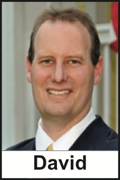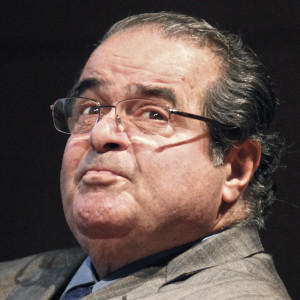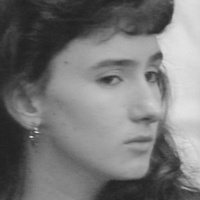Rascals case in brief
In the beginning, in 1989, more than 90 children at the Little Rascals Day Care Center in Edenton, North Carolina, accused a total of 20 adults with 429 instances of sexual abuse over a three-year period. It may have all begun with one parent’s complaint about punishment given her child.
Among the alleged perpetrators: the sheriff and mayor. But prosecutors would charge only Robin Byrum, Darlene Harris, Elizabeth “Betsy” Kelly, Robert “Bob” Kelly, Willard Scott Privott, Shelley Stone and Dawn Wilson – the Edenton 7.
Along with sodomy and beatings, allegations included a baby killed with a handgun, a child being hung upside down from a tree and being set on fire and countless other fantastic incidents involving spaceships, hot air balloons, pirate ships and trained sharks.
By the time prosecutors dropped the last charges in 1997, Little Rascals had become North Carolina’s longest and most costly criminal trial. Prosecutors kept defendants jailed in hopes at least one would turn against their supposed co-conspirators. Remarkably, none did. Another shameful record: Five defendants had to wait longer to face their accusers in court than anyone else in North Carolina history.
Between 1991 and 1997, Ofra Bikel produced three extraordinary episodes on the Little Rascals case for the PBS series “Frontline.” Although “Innocence Lost” did not deter prosecutors, it exposed their tactics and fostered nationwide skepticism and dismay.
With each passing year, the absurdity of the Little Rascals charges has become more obvious. But no admission of error has ever come from prosecutors, police, interviewers or parents. This site is devoted to the issues raised by this case.
On Facebook
Click for earlier Facebook posts archived on this site
Click to go to
Today’s random selection from the Little Rascals Day Care archives….
Click for earlier Facebook posts archived on this site
Click to go to
Today’s random selection from the Little Rascals Day Care archives….
A DA unafraid ‘to go where the truth leads….’
 March 25, 2013
March 25, 2013
“I really see us as sharing the goal of making sure this conviction rests on credible and substantial evidence. I’m going to go where the truth leads in this matter.”
– Jon David, district attorney in Brunswick, Columbus and Bladen counties,
responding to a request from the North Carolina Center on Actual Innocence
to review DNA evidence in the case of Joseph Sledge
Mandy Locke’s account in the News & Observer will inspire confidence in neither the competence nor the good faith of North Carolina justice. Sledge, imprisoned 34 years for a double murder, has encountered unspeakable frustrations in his pursuit of exoneration.
Like Willie Grimes, however, Sledge is at last benefiting from a district attorney unimpaired with willful blindness toward his office’s past failures.
If the Edenton Seven are ever able to achieve true exoneration from the state, it likely won’t be with the acquiescence of the prosecutors, much less their assistance.
Antonin Scalia no sucker for children’s testimony

AP via msnbc.com
justice Antonin Scalia
Feb. 15, 2016
“(NYU law professor Rachel) Barkow points to Scalia’s (1990) dissent in Maryland v. Craig, where he railed against the court for permitting ‘a child witness to testify via closed circuit television in a sex abuse case,’ instead of requiring the child to testify live in the courtroom where she would be subjected to cross-examination by the defense.
“The Constitution, Scalia wrote, does not authorize judges to ‘conduct a cost-benefit analysis of clear and explicit constitutional guarantees, and then to adjust their meaning to comport with our findings.’ ”
– From “Antonin Scalia’s Other Legacy: He was often a friend of criminal defendants” by Robert Smith at Slate (Feb. 15)
Scalia’s ferocious dissent in Craig in defense of the Sixth Amendment’s “confrontation clause” featured this jugular-seeking missile:
“Because of (the court majority’s) subordination of explicit constitutional text to currently favored public policy, the following scene can be played out in an American courtroom for the first time in two centuries:
“A father whose young daughter has been given over to the exclusive custody of his estranged wife, or a mother whose young son has been taken into custody by the State’s child welfare department, is sentenced to prison for sexual abuse on the basis of testimony by a child the parent has not seen or spoken to for many months, and the guilty verdict is rendered without giving the parent so much as the opportunity to sit in the presence of the child, and to ask, personally or through counsel, ‘It is really not true, is it, that I – your father (or mother) whom you see before you – did these terrible things?’
“Perhaps that is a procedure today’s society desires; perhaps (though I doubt it) it is even a fair procedure; but it is assuredly not a procedure permitted by the Constitution….”
Further on, Scalia cited a 1983 prosecution in Jordan, Minn., that may have been first of the “satanic ritual abuse” wave.
“As children continued to be interviewed,” he wrote, “the list of accused citizens grew….There is no doubt that some sexual abuse took place in Jordan, but there is no reason to believe it was as widespread as charged….”
![]()
Defendants’ bond lowered to ‘only’ $200,000

frontline.org
Robin Byrum
Dec. 16, 2015
On this day 25 years ago: Bonds for Little Rascals employees Robin Byrum and Dawn Wilson are reduced to a still excessive $200,000 – Byrum’s from $500,000, Wilson’s from $880,000.
Byrum will be released four days later, Wilson not for eight weeks.
Because she went to trial and the jury returned a guilty verdict (eventually overturned), Wilson’s story is much better known.
But Byrum suffered her own coercive torture at the hands of prosecutors before charges were dropped in 1996.
Nineteen years old when she was arrested in January 1990, she spent almost a year in jail, leaving her 7-month-old baby in the care of her husband. Had she agreed to testify against Bob Kelly, she could have walked out a free woman – and mother.
In “Innocence Lost: The Plea” (1997), Byrum explained why she had been tempted by but repeatedly refused the prosecutors’ deal:
“…. I would not ever have to be separated from my child again. But then I’d have to live with the rest of my life that I (said I) did something when I didn’t do it.”
Oh, to see ourselves as other see us – ouch!
 Jan. 11, 2013
Jan. 11, 2013
“Chris Bean (Bob Kelly’s lawyer until becoming involved as a child-witness parent) told me that when the townspeople first saw the documentary, they thought it was OK and that nobody thought my film had personally misrepresented them.
“But then, he told me, the firestorm of national attention began and people were writing to the mayor, to the townspeople, to many of the families I interviewed, and it was like a house of cards, you know. It all came tumbling down on them.”
– Ofra Bikel, quoted in the Newark Star-Ledger (July 18, 1993)
“The only woman who never complained after the first film,” Bikel said, was Jane Mabry – Patient Zero in the rumor contagion.











0 CommentsComment on Facebook